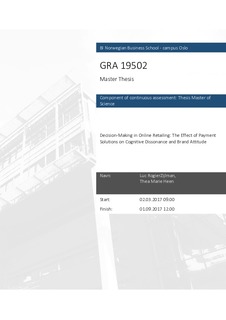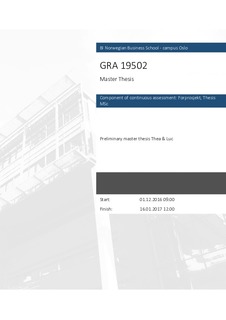| dc.description.abstract | The growing consumer debt in many western countries is a major concern for the
economy. In the meantime, online retailers are growing in number and are offering
multiple payment solutions, many of which include delaying payments. However,
there is little understanding of how consumers make the decision on how to finance
their purchases, or how different payment solutions affect the consumer's postpurchase
cognitive dissonance. This thesis intends to understand how consumers
decide upon a payment method, by labelling the active cognitive decision-making
system. Furthermore, it determines that consumers who choose payment delaying
methods display strong indications of having higher cognitive dissonance levels
than those who choose debit payment. Finally, this thesis proves that this
experienced cognitive dissonance has a larger impact on the purchased brand than
towards the third-party payment solution company, as the negative consumer
attitude change was stronger towards the purchased brand. | nb_NO |

